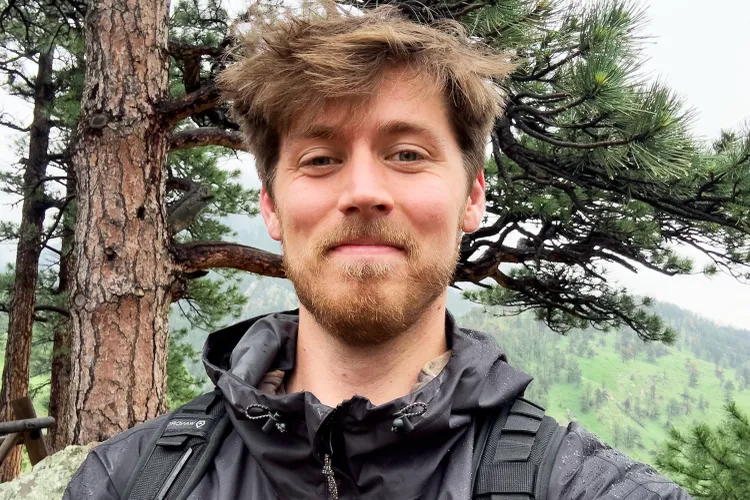American Travel Influencer Says Running a Marathon in North Korea Was the “Single Craziest Experience” of His Life — Inside His Once-in-a-Lifetime Journey
When American traveler Alex Page decided to run a marathon in one of the most secretive countries on Earth, he didn’t do it for medals, records, or fame. He did it because it was the only way to see a place most people only hear about in whispers. With just 24 days’ notice, the 29-year-old content creator from Minnesota signed up for what he would later call “the single craziest experience of my life.” His story is part adrenaline-fueled adventure, part surreal cultural exploration — and part reflection on what it means to see the world beyond the familiar.
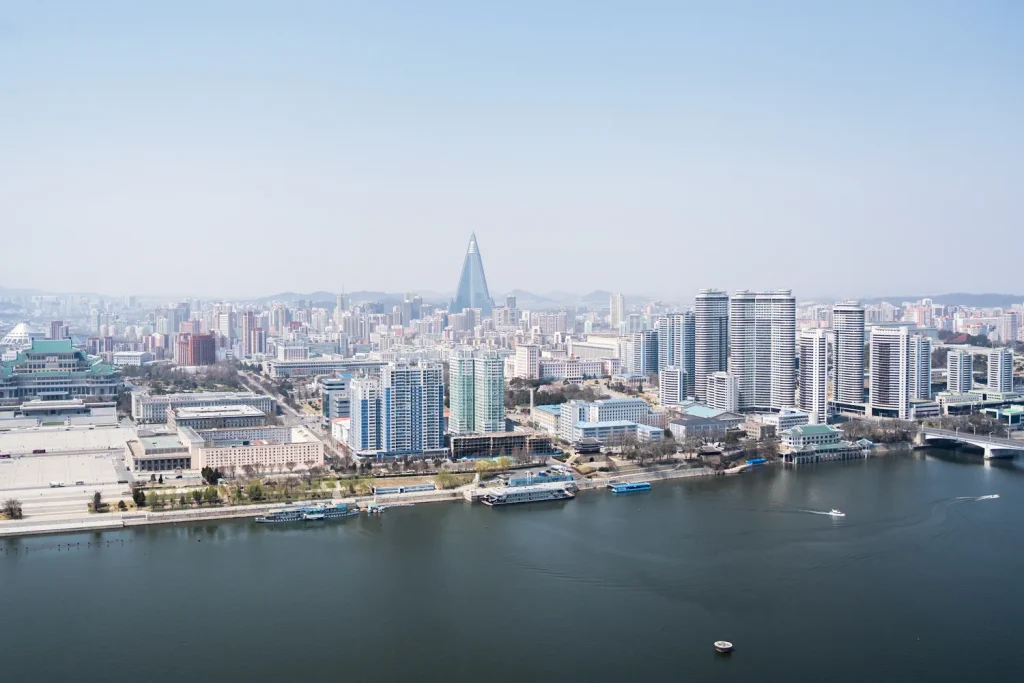
Alex Page is no stranger to extreme travel. Before North Korea, he had trekked through the jungles of Borneo, slept in the Sahara, and even taken solo bike rides across rural stretches of Central Asia. But this was different. North Korea, officially known as the Democratic People’s Republic of Korea, is among the most isolated nations on Earth, tightly controlled and heavily restricted to outsiders. Tourists can’t freely explore or even talk to locals without state supervision. Still, once a year, during the Pyongyang Marathon, a select number of foreign runners are allowed in under guided tours. “It was the only legitimate way to see the country beyond the airport,” Page told reporters in an exclusive interview. “And I knew if I didn’t do it now, I might never get the chance again.”
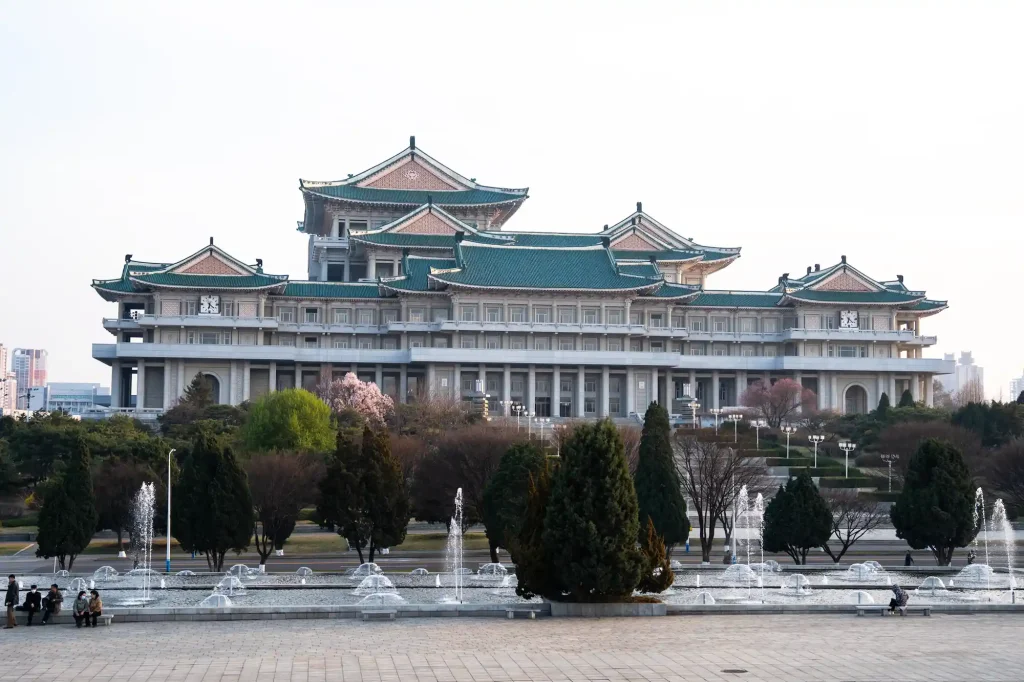
When he got the approval, he had less than a month to prepare. “It felt insane. I wasn’t even marathon-ready,” he admitted. “But when you get a once-in-a-lifetime invitation to North Korea, you don’t say no.” The journey began in Beijing, the only city with commercial flights to Pyongyang. Even before boarding, he felt the shift in atmosphere. “They took my phone, scanned my laptop, and checked all my camera gear,” he recalled. “It was strict, but not hostile. Just… tense. Like everyone knew this was not a regular trip.”
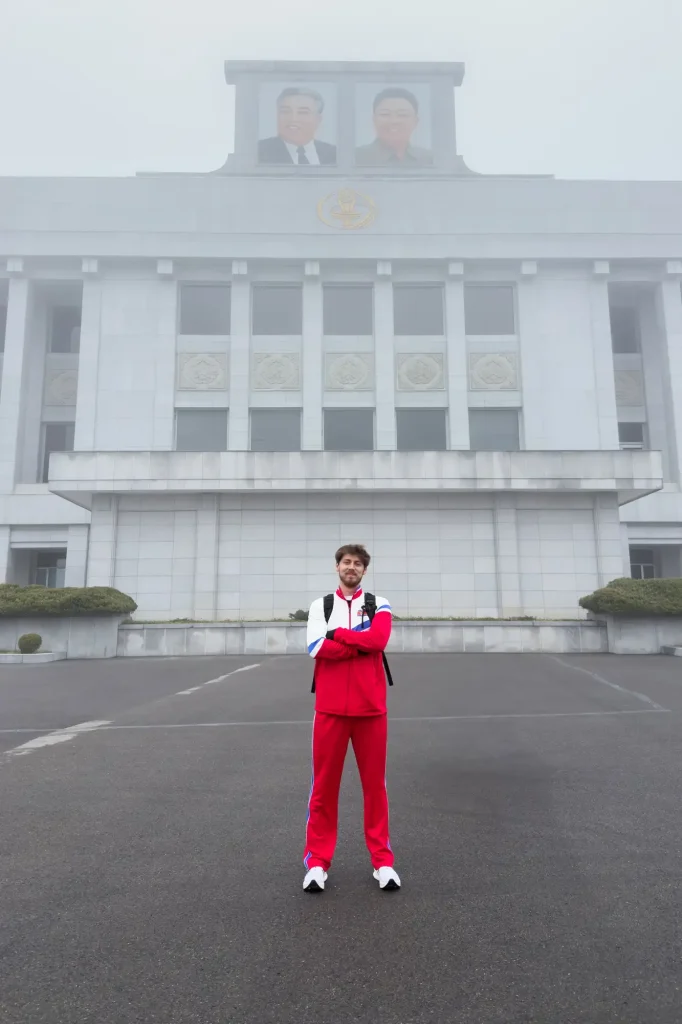
Upon landing in Pyongyang’s Sunan International Airport, Page and the other travelers were greeted by guides wearing badges of Kim Il Sung and Kim Jong Il, a mandatory accessory in the country. “They were polite, almost warm, but everything felt rehearsed,” he said. “They told us exactly what we could photograph and where we could go. Every step was coordinated. Even bathroom breaks were scheduled.”
The group’s first night was spent at the Yanggakdo International Hotel — the famous island hotel known for being one of the few places in the city where foreigners can stay, and yet, they’re not allowed to leave the premises. “It was eerie,” Page said. “From my window, I could see the city lights dimly glowing, but we couldn’t go out. It’s like being in a city that’s there, but not really there for you.”
The morning of the marathon, Pyongyang looked both monumental and still. Thousands of North Koreans filled the Kim Il Sung Stadium, cheering in perfect synchronization. “It was unlike anything I’ve ever seen,” Page said. “When the national anthem played, everyone stood in perfect formation, and the noise was deafening. It wasn’t like any other race — it felt like we were part of a show.”
The race itself was grueling — a 26.2-mile run through Pyongyang’s main streets, passing massive bronze statues, grand avenues, and meticulously clean but eerily quiet neighborhoods. “You don’t see the chaos of everyday life that’s normal in most cities,” he explained. “It’s organized, almost too perfect. There are soldiers at intersections, children waving flags, and women sweeping spotless streets. You get this surreal sense of discipline and silence.”
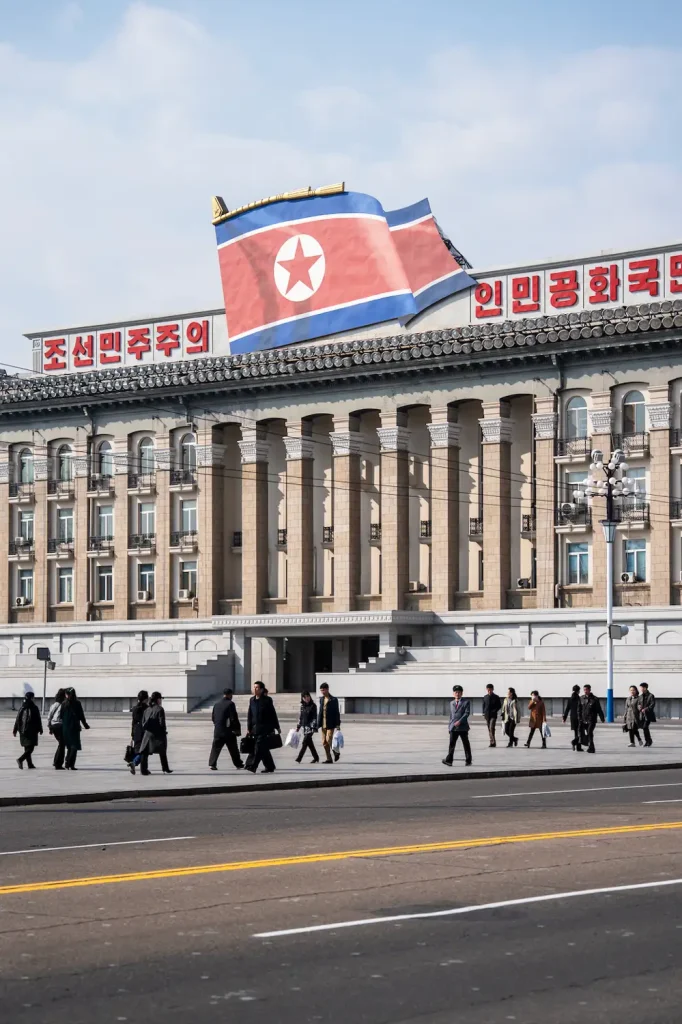
As he ran, Page couldn’t help but notice the duality — the pride of the people and the haunting absence of freedom. “There were moments where locals clapped as we passed, but it wasn’t spontaneous. It felt instructed,” he said. “Still, there was this strange humanity in their eyes. I could tell they were curious about us. One man even whispered, ‘Welcome,’ and that moment stuck with me. It felt like something small but meaningful in a place where everything is controlled.”
Crossing the finish line inside the stadium was a mix of triumph and disbelief. “There were thousands of people watching, yet it was completely silent until the announcer spoke. Then everyone erupted in cheers,” he remembered. “I’ve never felt such contrast — the energy of celebration mixed with the weight of knowing where I was.”
After the marathon, the group was taken on a tightly curated city tour — the Juche Tower, the Arch of Triumph, and the Kumsusan Palace of the Sun. “Every site was immaculate, and every explanation felt like it came from a script,” Page said. “They talked about unity, loyalty, and perfection. But you never saw regular life — no street markets, no ordinary homes, no spontaneity.”
Still, Page says the trip changed him. “You realize how powerful propaganda can be when you live in it, not just read about it,” he explained. “Every poster, every monument, every conversation reinforces one idea — devotion. It’s a completely different world.”
One of the most striking parts of the experience came during an evening visit to the Pyongyang Metro, one of the deepest subway systems in the world. “It was gorgeous, like a palace underground — chandeliers, marble walls, mosaics of leaders and workers,” he described. “But what fascinated me most was the music. They play orchestral versions of revolutionary songs on repeat. It’s hypnotic.”
Page said that the guides never let their professional masks slip, except once. “During the farewell dinner, one of them asked about my family in America. It was the first unscripted question all trip,” he said softly. “I told him I had a younger sister who was about his age. He just smiled and said, ‘Family is everything.’ That was the only moment I saw the person behind the uniform.”
The return journey was as controlled as the arrival — phones and cameras inspected again, footage reviewed, souvenirs limited. But Page says what stayed with him wasn’t fear or discomfort, but perspective. “When I stepped back into Beijing and my phone started buzzing with notifications, I realized how much we take for granted — connection, expression, movement,” he reflected. “In Pyongyang, silence is part of life. Here, it’s a luxury.”
His photos and videos from the trip, shared later on his social media platforms, quickly went viral — showing hauntingly beautiful images of a city few outsiders ever see. In one clip, he stands on an empty boulevard, the skyline hazy with mist, saying, “It’s quiet here. Too quiet.” In another, he films the marathon crowd clapping in unison, the sound echoing through the massive stadium. “People commented saying it felt dystopian,” Page said. “But to me, it felt like stepping into a parallel universe — one that’s real, yet so foreign it almost feels fictional.”
When asked if he’d ever return, he pauses. “Probably not. It’s not the kind of place you go twice,” he said. “But I’m glad I went. Not to glorify it — but to understand it, to see it for myself. You can’t form an honest opinion about the world if you only stay where it’s comfortable.”
He’s aware that his trip stirred debate online. Some criticized him for visiting a country accused of human rights abuses, while others praised his courage. “I understand both sides,” he said. “But for me, travel is about empathy. It’s not about approval. It’s about witnessing humanity, even in the hardest places.”
Since returning home, Page has been editing a short documentary about his journey — not a political film, but a human one. “I want people to see what I saw: the faces, the streets, the silence,” he said. “Because even in a place where freedom is restricted, people still smile, still dream, still exist beyond the system they live in. That’s the part that moved me most.”
For now, he’s back to his usual adventures, but the memory of North Korea lingers. “It’s the one place that made me question what freedom really means,” he said. “Not in a patriotic way, but in a personal one. You realize how precious it is to speak, move, and think without fear. You realize how much of the world doesn’t have that.”
Alex Page may never run another marathon like it, but the experience has left a mark deeper than any medal could symbolize. “The world is big,” he said, “but it’s also fragile. Every journey teaches you something new — sometimes about others, sometimes about yourself. North Korea taught me both.”
